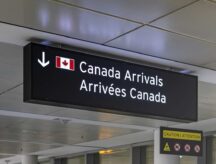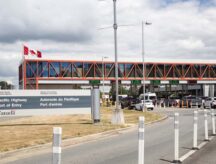What vaccinated travellers need to know before entering Canada
As part of Canada’s phased approach to easing border measures, fully vaccinated travellers who are exempt from travel restrictions will not need to quarantine nor will they need to take a COVID-19 test on day-8, beginning on July 5, 2021 at 11:59 p.m. EDT.
Vaccinated travellers coming to Canada before that date will still need to quarantine.
Canadians, permanent residents and their family members as well as some temporary foreign workers and international students who attend an educational institution with a COVID-19 readiness plan are exempt from the travel restrictions.
Discover if You’re Eligible for Canadian Immigration
In addition, holders of a valid Confirmation of Permanent Residence (COPR) are now also exempt, and may travel to Canada.
Canada’s health minister Patty Hajdu said that Canada is working on a “proof of vaccination” that will be accepted by the federal government.
To be considered fully vaccinated in Canada, you must have received vaccines approved by the Canadian government. This means you should have received two doses of the Pfizer, Moderna or AstraZeneca vaccines, or one dose of the Janssen vaccine, or approved combinations, at least 14 days before entering Canada.
If you received two doses from two different provinces, make sure you have the required documentation for both doses.
Here is what you need to know if you are planning to travel to Canada soon.
Before you travel to Canada
You will need to plan your quarantine before coming to Canada, in case you do not meet the entry requirements for fully vaccinated travellers.
Within 72 hours prior to arriving in Canada, you must take a COVID-19 test. You must also pre-register for your COVID-19 test upon arrival.
Make sure you download the ArriveCAN mobile application. You must enter the following details into the application:
- your contact and travel information;
- your quarantine plan;
- your 14-day travel history;
- your proof of vaccination in English or French;
- a COVID-19 symptom self-assessment; and
- a confirmation of a negative COVID-19 test result or a positive result taken between 14 and 90 days before travelling.
Bring your documents with you, including a digital or paper copy of a proof of vaccination.
The ArriveCAN mobile application is available for download on the Apple App Store as well as the Google Play Store.
If you do not have a smart phone, or if you will not have data while travelling, you can enter the required information on the ArriveCAN website, and bring a printed copy or screenshot with you.
At the Canada border
When you arrive in Canada, you may be asked to provide information and documents, such as a negative COVID-19 test and a proof of vaccination.
As you approach the border officer, make sure you have the ArriveCAN receipt ready on your phone. You may be asked to show this receipt to the officer.
You will also have to answer eligibility and health screening questions as well as questions about your vaccination.
Where testing services are available upon arrival, you will have to complete your COVID-19 test on-site. Otherwise, you will be asked to collect a home test kit to use when you arrive at your final destination.
If you are showing symptoms of COVID-19, or if you are found to not be exempt from the travel restrictions, you must follow the instructions given to you by the government representative.
After you arrive in Canada
If you are exempt from the travel restrictions, are not showing any symptoms of the virus and you are fully vaccinated, you will not need to stay at a government-approved hotel. You will also not need to quarantine nor will you need to take another test on the eighth day after arrival.
Canada does not have an approved vaccine for children under 12 years old. Children travelling to Canada may need to quarantine when they get home. They will not need to stay at a hotel.
If, for health reasons, you are unable to get vaccinated, you will still need to quarantine and take a COVID-19 test on the eighth day. This applies to anyone over the age of five.
If you didn’t complete your COVID-19 test upon arrival and you got a home test kit instead, complete it and send it to the lab. Should your test result return as positive, you will need to quarantine and isolate yourself from others.
Discover if You’re Eligible for Canadian Immigration
© CIC News All Rights Reserved. Visit CanadaVisa.com to discover your Canadian immigration options.
- Do you need Canadian immigration assistance? Contact the Contact Cohen Immigration Law firm by completing our form
- Send us your feedback or your non-legal assistance questions by emailing us at media@canadavisa.com







